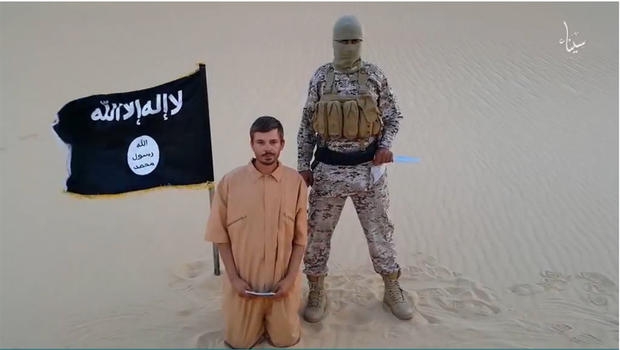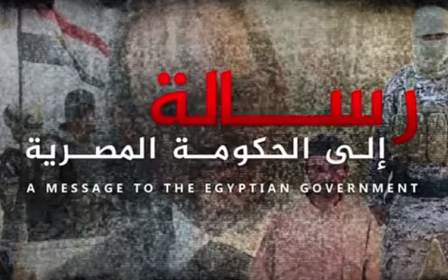IS claims beheading of Croatian hostage in Egypt

The Islamic State group claimed Wednesday to have beheaded a Croatian hostage abducted in Egypt, posting a purported picture of the victim's body on IS-affiliated Twitter accounts.
The Croat, Tomislav Salopek, was abducted last month west of the capital Cairo. The militants had issued a 48-hour deadline that ended last Friday threatening to kill him if Muslim women prisoners were not released from Egyptian jails.
Croatia's foreign ministry said it could not confirm Mr Salopek's death, but Prime Minister Zoran Milanovic will hold a news conference at 17:00 (15:00 GMT). President Kolinda Grabar-Kitarovic has also said she has cancelled all her pre-arranged activities on Wednesday.
The picture's authenticity could not be immediately verified.
His abduction and purported killing were unprecedented in Egypt, which is battling an IS insurgency in the eastern Sinai Peninsula.
State-run Croatian news agency HINA quoted a foreign ministry source as saying it "does not have confirmation that abducted Croatian citizen Tomislav Salopek has been killed."
The picture was posted on IS-affiliated Twitter accounts with the caption: "Execution of prisoner from Croatia - which has participated in war on Islamic State - after deadline ended."
Foreign workers in Egypt
Salopek, a 31-year-old father of two, had been working with French geoscience company CGG when abducted from a car roughly 22 kilometres (14 miles) west of Cairo, security sources told AFP.
The abduction has rattled foreigners working for multinational companies and underscored the militants' reach despite a massive military campaign against IS.
Egypt had said it was intensifying efforts to locate Salopek after IS released a video of the hostage last Wednesday.
In the video, Salopek, kneeling next to a masked militant holding a knife, was forced to read a statement saying his captors would execute him in 48 hours if Cairo failed to release female prisoners, a key demand of Islamist militants over the past two years.
Salopek's abduction had been treated by police as a criminal kidnapping before the video emerged.
Although IS's Egyptian affiliate has killed hundreds of policemen and soldiers, the country had been spared the gruesome kidnappings and executions of foreigners conducted by IS in Iraq and Syria.
The group has in the past beheaded Bedouin in Sinai it accused of collaborating with the Egyptian army.
Salopek's father had appealed to the kidnappers to release him and Croatian Foreign Minister Pusic had travelled to Cairo for emergency talks.
In his hometown, neighbours had described Salopek as a friendly young man who went to Egypt to earn a living.
Egypt, led by President Abdel Fattah al-Sisi, had been at pains to persuade international investors and companies that the country was safe after two years of violence and militant attacks.
Sisi was the former army chief who overthrew president Mohamed Morsi in 2013, setting up a police crackdown on Morsi's followers that killed more than 1,000 protesters.
In Sinai, which borders Israel and the Palestinian Gaza Strip, militants have launched a brazen insurgency that appears unabated despite a sweeping army campaign.
But IS has managed to launch attacks outside Sinai only a few times.
The group claimed responsibility for a bombing last month targeting the Italian consulate in Cairo, in which a passerby was killed.
Last December, the group claimed responsibility for the murder of an American who worked for petroleum company Apache, also west of Cairo.
New MEE newsletter: Jerusalem Dispatch
Sign up to get the latest insights and analysis on Israel-Palestine, alongside Turkey Unpacked and other MEE newsletters
Middle East Eye delivers independent and unrivalled coverage and analysis of the Middle East, North Africa and beyond. To learn more about republishing this content and the associated fees, please fill out this form. More about MEE can be found here.




